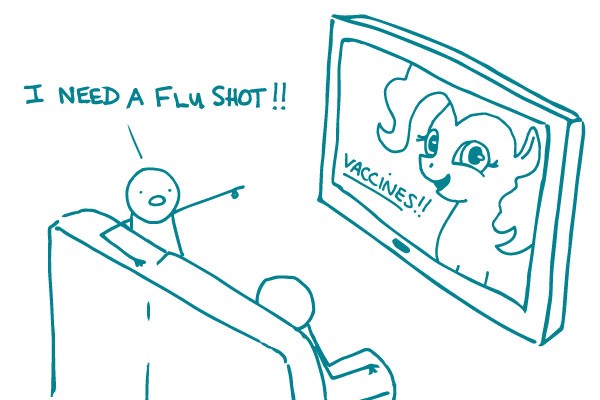
TV and movies can be powerful tools for conveying health messages to a wide audience. A 2008 report by the Kaiser Family Foundation and USC Annenberg found that 1 out of 4 people say that “entertainment television” is one of their top sources of health information. That’s a lot of people! And it means that TV is a potential platform for improving health literacy.
Successful collaborations between TV producers and public interest groups have bolstered public health campaigns about issues like smoking, seatbelt use, and designated drivers. Researchers found that an episode of the crime show Numb3rs that focused on organ donation directly inspired more people to become donors. And when Katie Couric had a colonoscopy live on national TV in 2000, colonoscopy rates increased by more than 20% in the months that followed.
We did our own (informal) research around the office and asked: What’s your favorite depiction of the importance of health literacy in popular culture? Do you remember a movie or TV show that changed your understanding of a health issue?
Some of us remembered the fails better than the successes — when shows pushed an issue in a clumsy, preachy, afterschool special way. One of our designers, Cozette, called out the 1990s high school sitcom Saved by the Bell’s legendarily over-the-top attempt to warn kids about the risks of caffeine pills. Jessie Spano’s highly-caffeinated freak-out would go on to launch a thousand .gifs.
Other staff noted that shows and movies about zombies — once C-grade horror staples — now tend to be mini lessons in epidemiology, complete with facts about vectors and exposure pathways. The zombie apocalypse survivors on The Walking Dead even visit CDC! (Better yet, CDC got in on the fun as a way to promote messages about preparedness.)
But our favorite — or at least our most sincere — story about health literacy intersecting with pop culture came from Amy, a senior editor. She said:
I saw an episode of ER in the 1990s in which a woman died because she accidentally overdosed on pills. She and her husband only spoke Spanish. The main characters were struggling to find out why the woman died, and then the big reveal happened — the medicine label said, “Take once a day.” But “once” is the word for “eleven” in Spanish. My middle school mind was blown.
The bottom line: Public health messages in pop culture can be effective teaching tools — and we’re sure to see a lot more of them in the future.
Browse recent posts